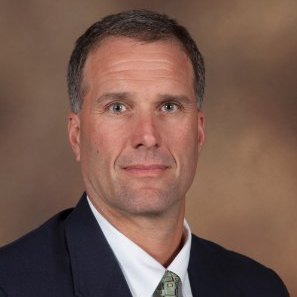The Search for The Next CIO: Candidate Robert Yanckello

A headshot of candidate for Pace’s CIO position, Robert Yanckello. (Photo courtesy of LinkedIn/Robert Yanckello.)
The Search Committee for the Chief Information Officer and Vice President (CIO/VP) position hosted an open forum with their second candidate, Chief Technology Officer of the University of Central Florida, Robert Yanckello, August 26th in Butcher Suite.
Yanckello feels as though the prime reason he is fit to be CIO of Pace is because of his career in holding senior information technology (IT) positions in higher education, including as the Chief Technology Officer at the University of Central Florida, and as the Chief Information Officer at Central Connecticut State University
Should Yanckello become the CIO he foresees one of his biggest challenges being working with and intending to the individual needs of both Pace’s New York City campus and its Pleasantville campus.
“I think having both campuses needs to be paid attention too. It’s a concerned from a team prospective, understanding both cultures and what the difference is, and what people expect. I think our faculty and staff expect [for IT] to be able to provide a consistent experience for users regardless of whether they are at [the Pleasantville campus] or another campus,” Yanckello said.
Another challenge Yanckello sees in the future is increasing Pace’s use of data in its business.
“I think using the data to help the business, understanding that data and how it can help the organization and the university retain students, make them more successful, and enhance the teaching and learning experience [is important],” Yanckello said.
Yanckello considers his greatest achievement implementing SCT Banner, which is an Internet-native technology solution for higher education, at Central Connecticut State University. According to Yanckello it taught him to successfully work with a team to make a change in an organization with an already established culture.
“I learned a lot during that time, that you can’t make assumptions, and also that you can’t mandate much when you do a transition like that. You really want to get a conversation going, and get a broad group of people,” Yanckello said. “You want to be inclusive and want to communicate broadly and often. You want to gather feedback and discuss their points as you make an implementation like that.”
If hired, Yanckello promises to address the issue of the Wi-Fi sometimes not working by examining the demands of the users.
“It is a constant battle for us to supply enough bandwidth to meet the user expectation, it doesn’t mean it’s impossible [to improve connectivity],” Yanckello said. “I think what you have to do is look at what’s taking place, where it is taking place, what the needs of the students are, which is anywhere from gaming to movies, to academic endeavors, to the number of devices on the network, to the amount of available budget, and take it as a step by step approach.”
Another issue Yanckello hopes to address is organizing storage since often times items are stored in multiple locations –like flash drives, floppy disks, and on computers, instead of being condensed in one location.
If given the position Yanckello thinks he would have to give more than two weeks’ notice when leaving the University of Central Florida because of his role, but doesn’t think it would be in a time frame that’s unreasonable to Pace.
Your donation supports independent, student-run journalism at Pace University. Support the Pace Chronicle to help cover publishing costs.
